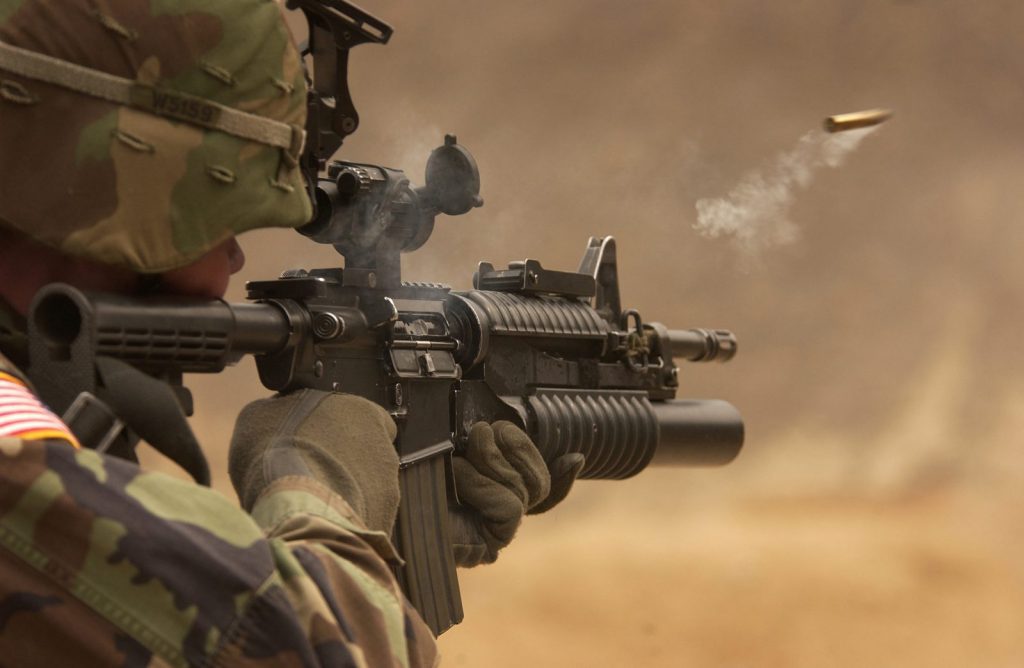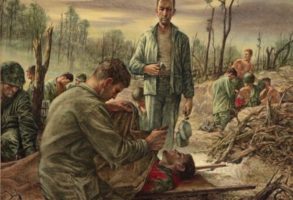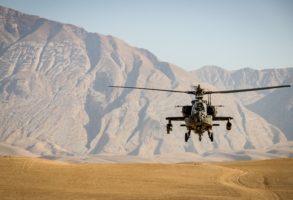
Published November 10, 2017
Review: Nicholas Irving and Gary Brozek’s Way of the Reaper: My Greatest Untold Missions and the Art of Being a Sniper. (This review first appeared in the Summer 2017 issue of Providence’s print edition.)
On the surface, Nicholas Irving’s Way of the Reaper seems to be a typical shoot-‘em-up memoir designed for men vicariously seeking adventure. But by the end of the book, Irving has turned reflective. To his evident surprise, experience on the battlefield finally sinks into his consciousness, enabling him to break through the studied callousness of the combat soldier and to turn himself into a case study on the role of battle in causing moral injury.
An African-American soldier, Irving (called “Irv” by his comrades) served his platoon in the 75th Ranger Regiment in various capacities, with the occupational specialty of sniper. So successful was he in the course of killing 33 armed militants that he gladly claimed the title of “reaper.” Much of this is told in greater detail in his similarly titled previous memoir, The Reaper.
Irving practiced his specialty as a direct-action sniper in support of Ranger night missions, typically tasked with the capture of high-value individuals. He also assisted interdiction missions that targeted weapons caches or illicit drug ventures used to support Taliban operations. Irving usually provided surveillance for his team using elevated terrain or rooftops, seeking out threats up to about 300 meters away. His ambition was to improve his skills so that he might qualify for further training toward the long-range version of the sniper profession.
For most of his time in Afghanistan, Irving did not depart from the macho attitudes typical of elite combat soldiers. He writes of his “excitement of taking out a few more guys that night,” or in other words, killing them. It would be unrealistic to expect a young infantryman to reflect much on the ethics of sniping or even to know that “sharpshooters” as far back as the American Civil War were actually held in abhorrence even by their own comrades in adjacent infantry units. Irving does know that there were critics of the ethics of sniping, and he emphatically, glibly, rejects those sentiments. Indeed, while the sentiments he attributes to the critics are superficial, so too are his own responses to them. Both are likely to be dismissed out of hand by any reader with a modicum of interest in the moral dilemmas that both sides ought to be considering.
Yet, there is another side to this hard, young man who volunteered for, and succeeded in qualifying for, the hard duty of special operations missions. For instance, he acknowledges his fear of heights and hatred of parachuting. While there is no way of knowing how widespread these feelings are in airborne units, this reviewer has known hundreds of paratroopers, but has no recollections of ever hearing one of them express similar fears. And yet Irving drops his macho tough talk and tells the world of his weakness. The reader can only admire the honesty of his self-revelation.
Toward the end of his tour of duty in Afghanistan, Irving and his platoon embarked on a typical night mission during which he killed several Taliban fighters. With a quick snap shot, he wounded one man who suddenly sprung up again unexpectedly and seemed, simply, to sit there lost in thought after the 7.62mm bullet struck him in the leg. Irving recollects:
He was an older guy, judging by the folds and wrinkles around his eyes. I swear he was looking at me and thinking, “So, okay, are you going to shoot me or what?”… I’d done all that training…and without warning or regret, something passed through me that had never before factored into my life as a sniper or soldier. I had this creeping belief that this was a variation on suicide by cop. All along this guy had been hoping that we’d end his life. He’d given us every opportunity, had wanted to make it difficult for us so that we wouldn’t feel so bad.
Early in the book, Irving tells us of the sniper’s motto, undoubtedly intended to help avoid such thoughts as he was now having at this moment in the end of his combat career. “When I first heard the words ‘Without warning; without remorse,’ I didn’t realize that remorse could ambush me without warning.” The crisis of conscience that now overtook him was apparently the cause of his leaving the Army at the end of his enlistment rather than following through on his earlier intention to reenlist. “I had one question that I pushed out of my mind until after I’d decided to leave the Army and begun finding comfort and courage in the bottom of too many bottles of booze: Was I a good man or a bad man?”
Such existentially desperate questions have been addressed in the pages of Providence before, including in essays by the managing editor Marc LiVecche and contributing editor Chaplain Timothy Mallard, US Army. These are good places to start for those wanting to know something more about spiritual injuries in war. Irving’s dependence on alcohol was followed by a suicide attempt, each being means borne of his attempt to answer that question about his own moral character. Like too many of our combat veterans, Irv was never wounded in the conventional sense, but he became a living example in the library of moral injury.
—
Herbert Schlossberg is a fellow at the Ethics and Public Policy Center and a retired historian. He is a former infantryman in the 82ndAirborne Division, United States Army.





